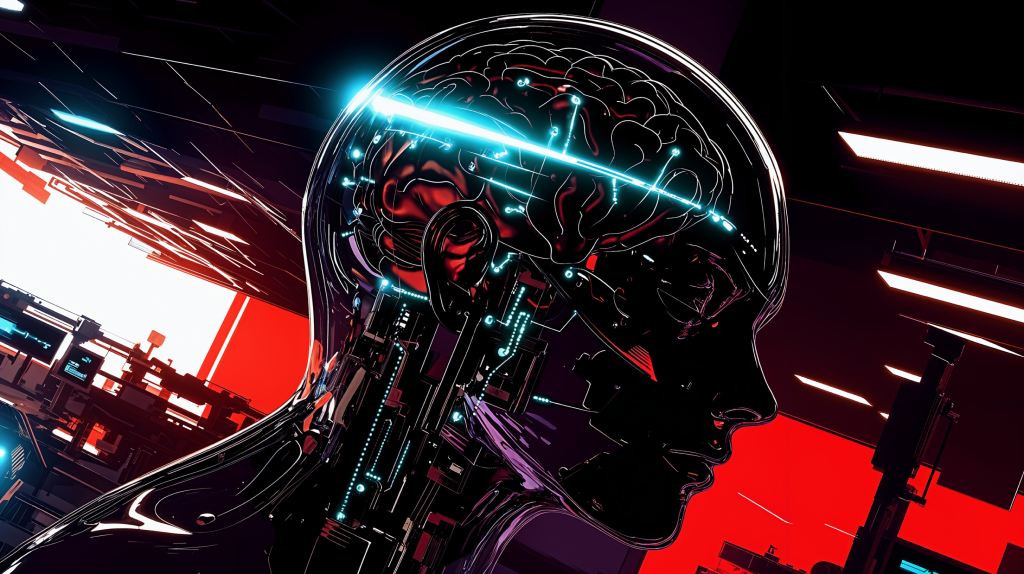The Psychology of Roleplay: How D&D and RPGs Transform Identity and Foster Personal Growth

Introduction
In the shadowed corners of a tavern that exists only in imagination, a shy college student speaks with unexpected authority as a charismatic bard. Across town, a high-powered executive temporarily abandons her decision-making role to experience vulnerability as a novice wizard. Online, a teenager navigates complex moral dilemmas through the avatar of an ancient vampire seeking redemption.
What's happening in these moments transcends simple entertainment. Modern roleplaying games have evolved into sophisticated psychological playgrounds where the boundaries between player and character blur into something transformative. The act of stepping into another's consciousness — even one we've created — can reveal unexpected truths about our own.
Table of Contents
- Introduction
- From Satanic Panic to Therapeutic Tool: The Evolution of RPGs
- The Nature of Identity and Role-Play
- Escapism vs. Empowerment: More Than Just Fantasy
- DIY Psychology and Grassroots Healing
- Gaming as a Laboratory for the Self
- Character Arcs as Personal Development
- Beyond Escapism: Integration and Growth
- From Fantasy to Growth: The Science Behind Roleplay's Impact
From Satanic Panic to Therapeutic Tool: The Evolution of RPGs
Tabletop roleplaying games, particularly Dungeons & Dragons, have undergone a remarkable transformation in public perception over the past four decades. During the 1980s, these games were often stigmatized, portrayed by some religious and conservative groups as dangerous gateways to occult practices. The infamous "Satanic Panic" cast a long shadow over the hobby, associating it with deviant behavior rather than creative expression.
Today, the landscape has shifted dramatically. What was once condemned is now being studied by psychologists and mental health professionals as a potentially valuable therapeutic tool. This evolution represents not just a vindication for longtime players but an emerging recognition of the profound psychological mechanisms at work in collaborative storytelling.
As early as 1994, psychiatrist Wayne D. Blackmon documented one of the first clinical applications of D&D in his case study "Dungeons and Dragons: The Use of a Fantasy Game in the Psychotherapeutic Treatment of a Young Adult." His work marked an early recognition of roleplaying's therapeutic potential:
"After he became involved in playing a fantasy game, Dungeons and Dragons, the therapy was modified to use the game material as displaced, waking fantasy. This fantasy was used as a safe guide to help the patient learn to acknowledge and express his inner self in a safe and guided way."
The results were profound:
"The patient ultimately matured and developed healthier object relations and a better life."
— Wayne D. Blackmon (1994)1
What Blackmon observed in a single case has since been supported by broader research, suggesting that the mechanisms of fantasy roleplaying can catalyze genuine psychological growth.
The Nature of Identity and Role-Play
At the core of roleplaying's psychological impact is its unique relationship with identity. Unlike other forms of entertainment that ask us to passively observe characters, RPGs invite active participation in becoming someone else. This process engages our capacity for empathy, creativity, and self-reflection in uniquely powerful ways.
The character sheet provides structure — statistics, backgrounds, motivations — but the true alchemy happens when players breathe life into these frameworks through decision-making and improvisation. Each choice made "in character" draws from some combination of the player's own instincts and their conception of this alternate identity.
This low-stakes laboratory for identity exploration allows players to experiment with aspects of themselves that might otherwise remain dormant. The shy person can experience assertiveness, the impulsive individual can practice caution and planning, and the rigidly logical thinker can explore emotional intuition — all within the safe container of the game.
Importantly, this identity work happens without the self-consciousness that might accompany formal therapy. Players are free to explore facets of their personalities precisely because they're "just playing a game." This freedom often leads to unexpected insights and growth that might be resisted in more clinical settings.
Escapism vs. Empowerment: More Than Just Fantasy
A common criticism of roleplaying games is that they represent mere escapism — flights of fancy that distract from real-world challenges rather than preparing players to face them. This perspective misses the complex relationship between fantasy and reality in roleplaying experiences.
Recent research suggests that what appears as escape may actually function as empowerment. The 2024 scoping review by Yuliawati, Wardhani, and Ng found that:
"TTRPG provides benefits to promote cognitive and psychosocial skills, to prevent negative effects and stress, as well as to intervene in psychological problems such as social anxiety, depressive symptoms, and autism spectrum disorders."
Far from being a simple retreat from reality, fantasy roleplaying can become a proving ground for skills directly applicable to everyday life. The same review noted:
"Participants in that study reported feeling more connected to one another and gained confidence through confrontational opportunities. It has been demonstrated that adults who engage in TTRPGs, regardless of the scenario, experience personal growth and development. Despite being a form of escapism from the real world, TTRPGs offer a whole new experience of meaning-making, enriching the participants' lives."
— Livia Yuliawati (2024)2
This paradox — finding real-world meaning through fantasy — appears repeatedly in both research and player testimonials. By temporarily stepping away from our everyday identities, we often gain perspective and skills that enrich our experience when we return.
DIY Psychology and Grassroots Healing
Long before clinical research validated roleplaying's psychological benefits, players were intuitively using these games for self-discovery, emotional processing, and personal growth. This grassroots healing phenomenon represents a form of DIY psychology — informal but often effective self-directed therapeutic work.
Online communities abound with testimonials from players who have processed grief through characters dealing with loss, worked through social anxiety by practicing interactions in-game, or explored gender expression in a supportive fictional context. While these informal applications lack clinical oversight, they highlight the natural therapeutic mechanisms inherent in roleplaying.
This organic therapeutic use has recently inspired more formalized approaches. In 2024, Otani and colleagues proposed a structured framework for implementing roleplaying games as mental health interventions, noting that their method:
"encompasses the objectives of social skills training (SST), the strategies of cognitive behavioral therapy (CBT), and the dynamics of gamification via TTRPGs."
Their work represents an important bridge between informal and clinical applications, bringing scientific rigor to practices that players have intuitively embraced for decades. The researchers concluded that this approach is:
"structured, evidence-based, easily applicable, cost-effective, and thus viable."
— Victor H. O. Otani (2024)3
This emergence of structured methodologies marks an important evolution: what began as entertainment, transformed into grassroots self-help, and is now developing into evidence-based therapeutic practice.
Gaming as a Laboratory for the Self
Perhaps the most powerful aspect of roleplaying games is their function as behavioral and emotional laboratories. Within the protective framework of the game, players can test decisions, experience consequences, and practice responses to challenging situations — all without real-world stakes.
This simulated environment allows for experimentation with:
- Decision-making styles: Players can practice everything from impulsive choices to careful deliberation, observing the outcomes within the game narrative.
- Ethical reasoning: Complex moral dilemmas in gaming contexts allow players to explore their values and principles through concrete scenarios.
- Emotional intelligence: By embodying characters with different emotional patterns, players can develop greater awareness of emotional dynamics in themselves and others.
- Conflict resolution: In-game conflicts provide opportunities to practice negotiation, compromise, and different approaches to interpersonal tension.
These laboratory experiences align with findings from all three research studies. Blackmon's 1994 case demonstrated how roleplay provided "a safe guide to help the patient learn to acknowledge and express his inner self," while the 2024 scoping review confirmed benefits for "cognitive and psychosocial skills." Similarly, the Critical Skills methodology leverages these mechanisms through "the strategies of cognitive behavioral therapy (CBT), and the dynamics of gamification via TTRPGs."
What makes this laboratory particularly effective is its combination of emotional engagement with cognitive processing. Players aren't just intellectually considering hypothetical situations — they're emotionally invested in outcomes while still maintaining sufficient distance to reflect on the experience.
Character Arcs as Personal Development
In roleplaying games, character development becomes a collaborative narrative exercise with real psychological implications. When a character overcomes an obstacle, forms a relationship, or faces a fear, the player experiences a vicarious achievement that can translate to genuine insight.
This parallel growth manifests in multiple ways:
- The timid player whose warrior character learns to lead might find their own voice strengthened
- The rigid thinker whose rogue embraces improvisation may discover new cognitive flexibility
- The conflict-avoidant person whose diplomat navigates tense negotiations might develop real conflict resolution skills
These transformations rarely happen in dramatic epiphanies. Instead, they emerge gradually through consistent practice in thinking differently — a form of psychological exercise made palatable through play.
Beyond Escapism: Integration and Growth
The emerging research on roleplaying games suggests they serve a function far beyond mere entertainment. Rather than merely fleeing reality, players engage in what psychologists might call "integrative play" — using imagination to process, understand, and ultimately return to everyday life with new perspective.
In an increasingly fractured world of digital interactions and specialized roles, roleplaying games offer a rare space to exercise our full humanity. Through collaborative storytelling, we recover something ancient and necessary — the ability to walk in another's shoes, to face the unknown with creativity, and to discover unexpected aspects of ourselves in the process.
As many players have experienced firsthand, the benefits of role-playing often extend beyond the table. Calogero, an avid TTRPG player, reflects:
"Yes, they definitely helped me grow in terms of maturity: facing dynamics with real people, learning to take losses or injustices, constantly finding motivation to improve, and even learning to appreciate small victories. As a result, even outside of the game, I find myself more thoughtful and careful with what I say. I can really see a difference between myself and others who may not know this world."
— Calogero, tabletop RPG player
The scientific evidence increasingly supports what players have intuitively known: when we pretend to be someone else, we often become more authentically ourselves. As research continues to illuminate the psychological mechanisms at work in roleplay, these games may eventually be recognized not just as entertainment but as powerful tools for personal growth and mental wellbeing.
From Fantasy to Growth: The Science Behind Roleplay's Impact
As research continues to illuminate the psychological mechanisms at work in roleplay, these games demonstrate value beyond entertainment. The evidence supports what many players have experienced firsthand: structured imagination creates genuine psychological development.
Key Psychological Benefits of Roleplaying Games
| Benefit | Explanation |
|---|---|
| Identity Exploration | Players safely experiment with different aspects of self through character creation and development. |
| Emotional Resilience | Facing challenges and setbacks in-game develops coping strategies applicable to real-world difficulties. |
| Social Skill Development | Collaborative storytelling builds communication skills, empathy, and conflict resolution abilities. |
| Decision-Making Practice | Players experience consequences of choices without real-world stakes, improving decision processes. |
| Psychological Integration | Roleplaying helps integrate various aspects of personality into a more cohesive whole. |
Whether you're a veteran gamemaster or curious newcomer, consider that each character creation and campaign represents an opportunity for growth. The fantasy worlds we build together reveal unexpected truths about our real one.
Roll for insight. The results might surprise you.
References
Blackmon, W. D. (1994). Dungeons and Dragons: The Use of a Fantasy Game in the Psychotherapeutic Treatment of a Young Adult. ResearchGate ↩
Yuliawati, L., Wardhani, P. A. P., & Ng, J. H. (2024). A Scoping Review of Tabletop Role-Playing Game (TTRPG) as Psychological Intervention: Potential Benefits and Future Directions. National Library of Medicine ↩
Otani, V. H. O., Novaes, R. A. C. B., Pedron, J., et al. (2024). Framework proposal for Role-Playing Games as mental health intervention: the Critical Skills methodology. National Library of Medicine ↩
- Authors

- Name
- Salvatore Manna
- @in/salvatore-manna
- Published on
- 10 min read